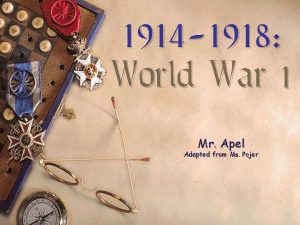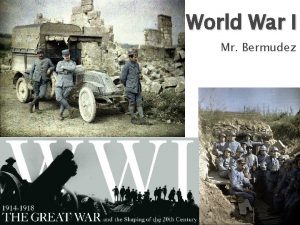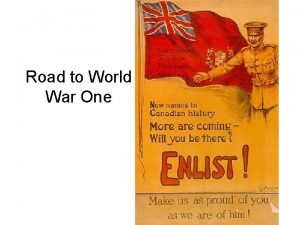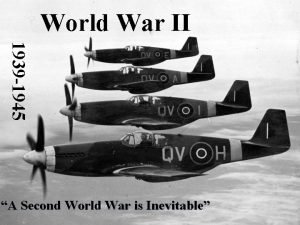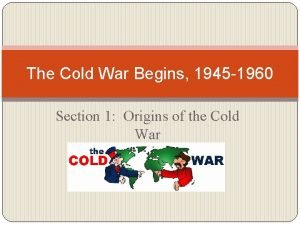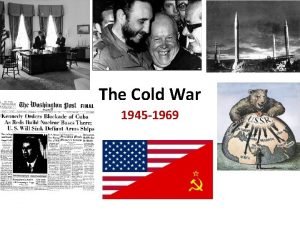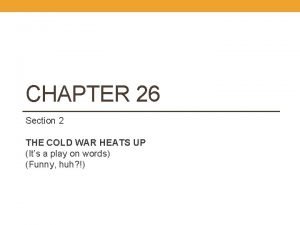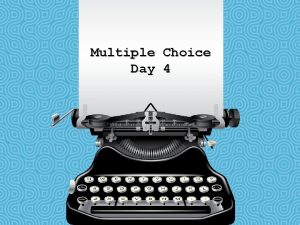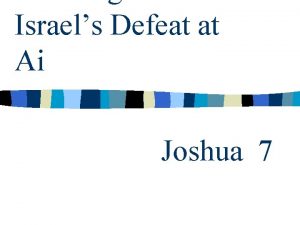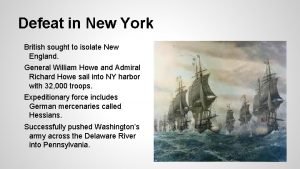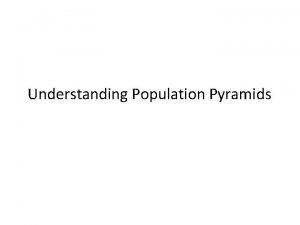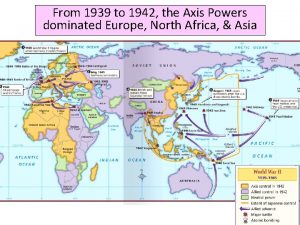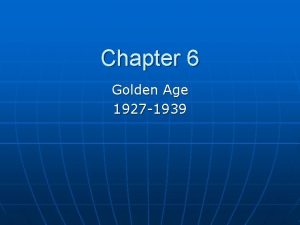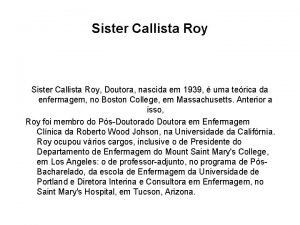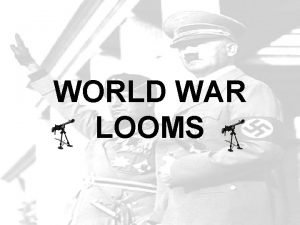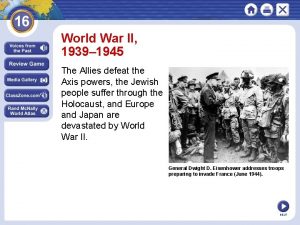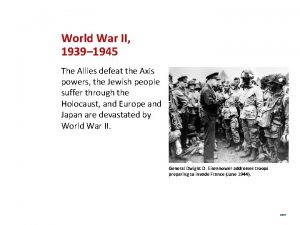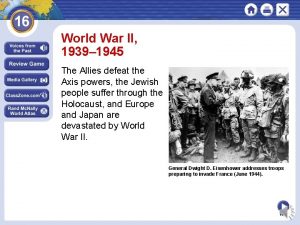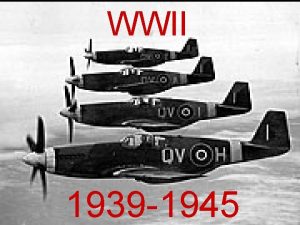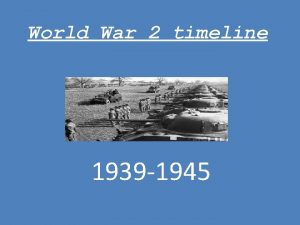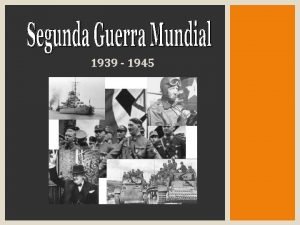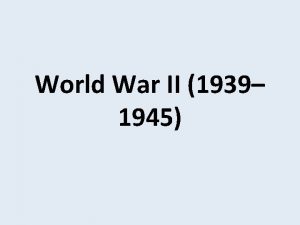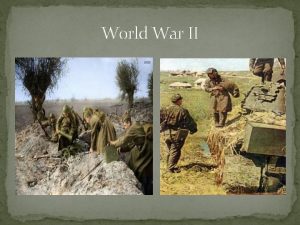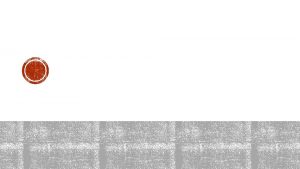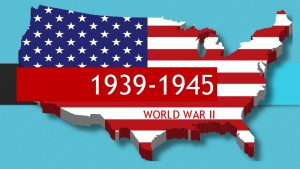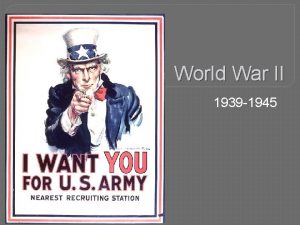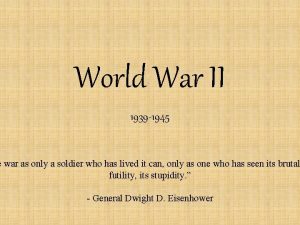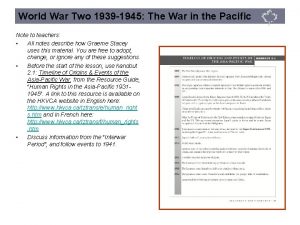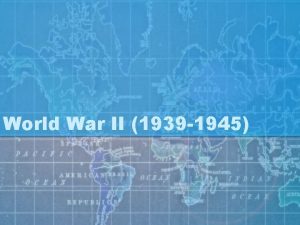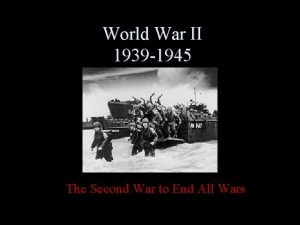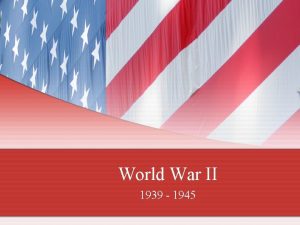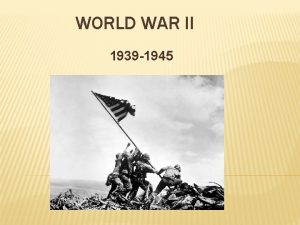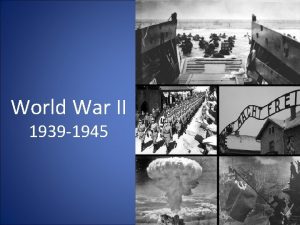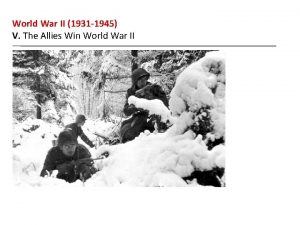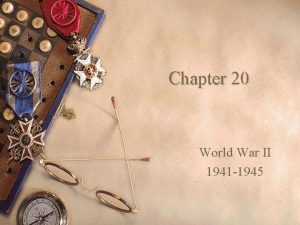World War II 1939 1945 The Allies defeat



































- Slides: 35

World War II, 1939– 1945 The Allies defeat the Axis powers, the Jewish people suffer through the Holocaust, and Europe and Japan are devastated by World War II. General Dwight D. Eisenhower addresses troops preparing to invade France (June 1944). NEXT

World War II, 1939– 1945 SECTION 1 Hitler’s Lightning War SECTION 2 Japan’s Pacific Campaign SECTION 3 The Holocaust SECTION 4 The Allied Victory SECTION 5 Europe and Japan in Ruins Map Chart NEXT

Section 1 Hitler’s Lightning War Using the sudden, mass attack called the blitzkrieg, Germany overruns much of Europe and North Africa. NEXT

SECTION 1 Hitler’s Lightning War Germany Sparks a New War in Europe Secret Agreement • Nonaggression pact—Germans, Soviets agree not to fight each other • Agreement includes secret deal to split Poland Image Germany’s Lightning Attack • September 1, 1939—Hitler launches invasion of Poland • Britain, France declare war on Germany but Poland falls quickly • Blitzkrieg—lightning war—Germany’s new military strategy • Planes, tanks, infantry used to surprise enemy and quickly conquer NEXT

SECTION 1 Germany’s Lighting Attack The Soviets Make Their Move • Soviets capture Lithuania, Latvia, Poland, resistance met in Finland • Finland surrenders in March 1940 The Phony War • French, British mobilize along French border, wait for German attack • Many months of no action—the “phony war” • In April 1940 Hitler attacks and quickly captures Denmark, Norway NEXT

SECTION 1 The Fall of France Further Gains • May 1940—Germany conquers Netherlands, Belgium, Luxembourg • Soon after, German army reaches French coast Rescue at Dunkirk • German forces trap British, French on coast at Dunkirk • British Navy, civilians take ships across Channel to rescue soldiers France Falls • June 1940—France surrenders to Germany • Charles de Gaulle, French general, organizes opposition to Germany NEXT

SECTION 1 The Battle of Britain Threat to Britain • Winston Churchill—Becomes British prime minister, vows no surrender • Germany plans invasion of Britain; begins with air attacks in 1940 • British use air force, radar, code-breaking to resist Germany • Battle of Britain—Air war over Britain that lasted until May 1941 • Stunned by British resistance, Hitler calls off attacks Map NEXT

SECTION 1 The Mediterranean and the Eastern Front Axis Forces Attack North Africa • Mussolini, Italy at first neutral • Mussolini declares war on France, Britain after German victory • September 1940—Mussolini attacks British in North Africa Britain Strikes Back • December 1940—British attack and drive Italians back • Erwin Rommel, German general, battles British in North Africa • In 1942, Rommel first retreats then succeeds against British Continued. . . NEXT

SECTION 1 continued The Mediterranean and the Eastern Front The War in the Balkans • Hitler plans to invade Soviet Union; moves to take Balkan countries • Hitler invades Yugoslavia, Greece in April 1941; both fall quickly Hitler Invades the Soviet Union • Germany invades an unprepared Soviet Union in June 1941 • Soviet troops burn land as they retreat; Germans move into Russia • Germans stopped at Leningrad, forced to undertake long siege • Germans almost capture Moscow, but forced to pull back NEXT

SECTION 1 The United States Aids Its Allies American Policy • Most Americans want to avoid war • Roosevelt fears that if allies fall, U. S. would have to fight • He hopes to strengthen allies so they can resist Germany • Lend-Lease Act—U. S. loans weapons to countries fighting Germany • Roosevelt and Churchill meet, issue statement of principles • Atlantic Charter—supports free trade, right to form own government NEXT

Section 2 Japan’s Pacific Campaign Japan attacks Pearl Harbor in Hawaii and brings the United States into World War II. NEXT

SECTION 2 Japan’s Pacific Campaign Surprise Attack on Pearl Harbor Japan and the U. S. • Japan develops plan for attacks on European colonies, U. S. bases • In 1941 Roosevelt cuts off oil shipments to Japan • Admiral Isoroku Yamamato plans attack on U. S. fleet in Hawaii Day of Infamy • Japan attacks Pearl Harbor—U. S. naval base in Hawaii—on Dec. 7, 1941 • U. S. declares war on Japan • Japan also attacks Hong Kong, Thailand, and other islands Image NEXT

SECTION 2 Japanese Victories Gains in Many Places • Japanese attack Philippine Islands defended by U. S. , Filipino troops • Philippine islands fall to Japanese in 1942 • Japan captures British holdings, including Hong Kong, Singapore • Also conquers Dutch East Indies, rich in minerals • Capture of Burma threatens India, Britain’s main possession in Asia • Japanese forces treat conquered peoples, prisoners of war brutally NEXT

SECTION 2 The Allies Strike Back Stunning Raid • U. S. bombers attack Tokyo, other Japanese cities in April 1942 • Raid does little damage, but shows that Japan is vulnerable The Allies Turn the Tide • Battle of the Coral Sea—Americans stop Japanese advance, May 1942 • New kind of naval warfare—ships launch planes to fight each other The Battle of Midway • Japanese send powerful fleet to capture Midway Island • Battle of Midway—U. S. destroys Japan’s naval fleet, Japan retreats NEXT

SECTION 2 An Allied Offensive Mac. Arthur’s Plan • Douglas Mac. Arthur—American army commander in Pacific • Plans to “island-hop” past strongholds, attack weaker Japanese bases • Battle of Guadalcanal—hellish battle that ends in Allied victory NEXT

Section 3 The Holocaust During the Holocaust, Hitler’s Nazis kill 6 million Jews and 5 million other “non-Arayans. ” NEXT

SECTION 3 The Holocaust Begins Racist Beliefs • Hitler and Nazis say Aryans—Germanic peoples— are “master race” • They launch the Holocaust—systematic murder of Jews and others Anti-Semitism • Nazis tap into long-held feeling of many Europeans against Jews • 1935 Nuremberg Laws take away rights of German Jews “Night of Broken Glass” Image • Kristallnacht—“night of broken glass, ” November 9, 1938 Continued. . . • Jewish homes, businesses, synagogues attacked; 100 Jews killed NEXT

SECTION 3 continued The Holocaust Begins A Flood of Refugees • Fearing more violence, many German Jews flee to other countries • Hitler favors emigration but other countries limit Jewish refugees Isolating the Jews • Hitler has all Jews moved to designated cities • They are forced to live in ghettos—separate Jewish areas • Hitler hopes that Jews in ghettos will die of disease, starvation • Despite bad conditions, Jews survive in these areas Image NEXT

SECTION 3 The “Final Solution” Hitler Seeks New Answer • “Final Solution”—Hitler’s final plan for treatment of Jews • Chooses genocide—systematic killing of an entire people The Killings Begin Chart • Nazis in Eastern Europe, Soviet Union create killing squads • They shoot men, women, children in mass executions • Other Jews sent to concentration camps or slave labor prisons Map Continued. . . NEXT

SECTION 3 continued The “Final Solution” The Final Stage • By 1942, Nazis building huge, efficient extermination camps • Camps separate strong from weak people • Weak (mostly women, children, elderly, sick) killed immediately The Survivors • Nazis kill about six million European Jews during the war • Fewer than four million survive Image NEXT

Section 4 The Allied Victory Led by the United States, Great Britain, and the Soviet Union, the Allies score key victories and win the war. NEXT

SECTION 4 The Allied Victory The Tide Turns on Two Fronts The North African Campaign • Rommel takes Tobruk, June 1942; pushes toward Egypt • British General Montgomery attacks at El Alamein, forces Rommel back • American forces land in Morocco, November 1942 • General Dwight D. Eisenhower—American commander in Morocco • In May 1943, Rommel’s forces defeated by Allies Continued. . . NEXT

SECTION 4 continued The Tide Turns on Two Fronts The Battle for Stalingrad • German army moves to capture Soviet oil fields • Battle of Stalingrad—Soviets, Germans battle for control of city • German troops capture city, then surrender after long battle The Invasion of Italy • U. S. , British forces land on, capture Sicily in 1943 • Mussolini loses power but Germans keep control of northern Italy • Allies invade Italy, but Germans keep fighting there until war ends NEXT

SECTION 4 The Allied Home Fronts Mobilizing for War • Fighting the war requires complete use of all national resources • 17 to 18 million U. S. workers—many of them women—make weapons • People at home face shortages of consumer goods • Propaganda aims to inspire civilians to aid war effort War Limits Civil Rights • Japanese Americans face prejudice, fear • Army puts Japanese Americans in interment camps in 1942 Image NEXT

SECTION 4 Victory in Europe The D-Day Invasion Interactive • Allies plan invasion of France; use deception to confuse Germans • D-Day—June 6, 1944; day of “Operation Overlord” invasion of France • Allied forces capture Normandy beaches; liberate Paris by September Image The Battle of the Bulge • U. S. , British forces advance on Germany from west, Soviets from east • Battle of the Bulge—German counterattack in December 1944 • Germans gain early success but forced to retreat Continued. . . NEXT

SECTION 4 continued Victory in Europe Germany’s Unconditional Surrender • By 1945, Allied armies approach Germany from two sides • Soviets surround Berlin in April 1945 • Hitler commits suicide • On May 9, 1945, Germany officially surrenders, marking V-E Day • President Roosevelt dies in April; Harry Truman becomes president NEXT

SECTION 4 Victory in the Pacific The Japanese in Retreat • Allies move to retake the Philippines in late 1944 • Battle of Leyte Gulf leaves Japanese navy badly damaged • Kamikazes—Japanese pilots who fly suicide missions • In March 1945, American forces capture Iwo Jima • U. S. takes Okinawa in June 1945; Japan suffers huge casualties Continued. . . NEXT

SECTION 4 continued Victory in the Pacific The Japanese Surrender • Advisors warn Truman that invasion of Japan will cost many lives • He has alternative; powerful new weapon called atomic bomb • Manhattan Project—secret program to develop the bomb • Atomic bomb dropped on Hiroshima, August 6, 1945; about 75, 000 die • Nagasaki bombed on August 9; 70, 000 die immediately • Japanese surrender on September 2, 1945 Chart Image NEXT

Section 5 Europe and Japan in Ruins World War II cost millions of human lives and billions of dollars in damages. It leaves Europe and Japan in ruins. NEXT

SECTION 5 Europe and Japan in Ruins Devastation in Europe A Harvest of Destruction Chart • Many cities across Europe badly damaged by war • Many people displaced by war and peace agreements Misery Continues After the War • Lack of food, destruction of roads, factories lead to hardship • Many people suffer from hunger, disease after war NEXT

SECTION 5 Postwar Governments and Politics Need for New Leaders • Many conquered countries went back to old governments • New leaders needed in Germany, Italy, and France • Communist parties make gains in Italy, France by promising change • Communist interest fades as economies recover The Nuremberg Trials • Nuremberg Trials—trials of 22 Nazi leaders for war crimes • Some Nazi leaders are executed for their actions NEXT

SECTION 5 Postwar Japan Serious Damage • In war, Japan loses two million people; severe damage to many cities Occupied Japan • Mac. Arthur takes charge of U. S. occupation of Japan • Starts process of demilitarization—disbanding Japan’s armed forces • Also launches democratization—creating democracy in Japan • Japanese people adopt new constitution in 1947 • Mac. Arthur puts economic reforms in place NEXT

SECTION 5 Occupation Brings Deep Changes Changing Japanese Society • Emperor kept on, but he loses power and becomes figurehead • Japanese people elect two-house legislature • Bill of rights guarantees freedoms; women also have right to vote • Constitution says Japan cannot attack another country • In 1951, peace treaty with Japan signed; U. S. occupation ends • U. S. and Japan become allies NEXT

This is the end of the chapter presentation of lecture notes. Click the HOME or EXIT button.

Print Slide Show 1. On the File menu, select Print 2. In the pop-up menu, select Microsoft Power. Point If the dialog box does not include this pop-up, continue to step 4 3. In the Print what box, choose the presentation format you want to print: slides, notes, handouts, or outline 4. Click the Print button to print the Power. Point presentation Print Text Version 1. Click the Print Text button below; a text file will open in Adobe Acrobat 2. On the File menu, select Print 3. Click the Print button to print the entire document, or select the pages you want to print Print Text BACK
 Who are allied powers
Who are allied powers World war i combatants allies
World war i combatants allies Arditi knives
Arditi knives World war 1 allies
World war 1 allies 1945 world war ii
1945 world war ii 1945 world war
1945 world war The cold war begins 1945-1960
The cold war begins 1945-1960 The cold war heats up: 1945 - 1969
The cold war heats up: 1945 - 1969 The cold war heats up chapter 26 section 2
The cold war heats up chapter 26 section 2 Defeat by kahlil gibran
Defeat by kahlil gibran 12 ways to defeat multi-factor authentication
12 ways to defeat multi-factor authentication Kneeling in defeat
Kneeling in defeat Defeat at ai
Defeat at ai Beowulf hero archetype
Beowulf hero archetype By your spirit i'm alive from the ashes of defeat
By your spirit i'm alive from the ashes of defeat Defeat in new york
Defeat in new york Selected population pyramids in the united states
Selected population pyramids in the united states 1930-1939 fashion
1930-1939 fashion Revolutionary leaders 1900-1939
Revolutionary leaders 1900-1939 Poland population 1939
Poland population 1939 Shingelfrisyren
Shingelfrisyren The golden age (1939-1956)
The golden age (1939-1956) Harta germaniei naziste
Harta germaniei naziste Who dominated europe, north africa and asia from 1939-1942?
Who dominated europe, north africa and asia from 1939-1942? Golden age of aviation 1927-1939
Golden age of aviation 1927-1939 1939 market crash
1939 market crash Mapamundi 1939
Mapamundi 1939 Casablanca movie map
Casablanca movie map 18. testu iruzkina
18. testu iruzkina Teoria da adaptação sister callista roy 1939
Teoria da adaptação sister callista roy 1939 Adam osborne laptop
Adam osborne laptop Stefan gerken
Stefan gerken Henri matisse la musique 1939
Henri matisse la musique 1939 Lili marleen 1939
Lili marleen 1939 Eileen chang love in a fallen city summary
Eileen chang love in a fallen city summary St. louis ship 1939
St. louis ship 1939
